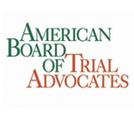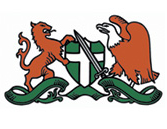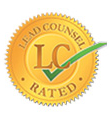Truck accident settlements vary significantly based on various factors. Among them are the severity of the accident and the extent of the resulting injuries. If you have been in a truck accident, you want to understand how settlements work and what they involve.
This blog discusses this subject to help you understand what compensation amount to expect. Importantly, you want to consult a qualified truck accident personal injury attorney. They will help you calculate the fair settlement you deserve so the insurers do not rip you off.
What a Truck Accident Settlement Is
A truck accident settlement is a financial grant made to victims suffering from injuries due to accidents with trucks that happen because of other parties’ negligence or recklessness. This grant is awarded after a deal reached among all applicable parties involved in the truck collision is reached. These parties include insurers, the victims, and other persons or entities that might have acted negligently or recklessly.
Negligence in truck accidents means when one or more involved parties fail to exercise appropriate care when operating a truck, leading to damage or harm to another party or their property. Acts that show negligence in truck accidents include:
-
Distracted driving,
-
Speeding,
-
Drunk driving,
-
Violating traffic laws, and
-
Road rage.
A settlement seeks to compensate a truck accident victim for the damages they sustained as a result of the crash. These damages might include:
-
Medical expenses
-
Pain
-
Suffering
-
Loss of companionship and consortium
-
Property damage and
-
Other associated costs
A settlement agreement refers to the document setting out all the terms of compensation. Compensation related to a truck collision is carefully calculated by considering every applicable fact surrounding the crash. The involved parties must mutually comprehend and consent to the agreement terms. If the parties cannot reach an agreement, a truck accident suit might follow. A lawsuit could subject the case to a court trial.
How a Typical Truck Accident Case Settles
After a truck accident where you have sustained injuries, a truck company's or trucker’s insurance adjuster will approach you. They will make their first settlement offer. They make this offer to appear as though it is an ideal deal. Yet, it often just covers your present medical costs. That said, you could be drastically under-compensated.
Should you agree to the adjuster’s offer, you will receive the compensation but forfeit your legal right to pursue further legal action. Should you refuse, negotiations begin between you, the insurer, and your lawyer. Both you and the adjuster will collect information regarding your injuries and the accident. Negotiations about the settlement will go on.
If the insurer does not make a just settlement offer, the next stage will be to bring an injury suit in court if:
-
The statute of limitations is near
-
You have recovered from your accident-related injuries
The court will set the trial date. Settlement negotiations continue up to the trial stage. If you and the insurer still do not reach a settlement agreement, the verdict after the trial will resolve your case. However, many cases will be settled before a court trial.
What Does a Truck Accident Settlement Cover?
If someone’s or an entity’s negligence caused a truck collision, you may have a right to recover damages or compensation. Your claim for damages varies depending on the facts surrounding the accident. However, generally, you may recover compensatory damages. These include non-economic and economic damages.
Economic Damages In Truck Accidents
Economic damages, also called special damages, comprise the losses victims suffered due to a truck collision. These damages seek to reimburse victims for calculable and tangible losses they sustained because of the crash, including:
-
Medical bills (past, future, and present). Medical bill damages compensate for the cost incurred in treating the accident-related injuries. Examples of the costs incurred include those for:
-
Health treatments (mental health included),
-
Home healthcare,
-
Prescription drugs,
-
Physiotherapy, etcetera
-
Lost income. You may recover damages for lost income if you missed work to nurse your injuries.
-
Lost or diminished earning capacity. You will recover these damages to reimburse you if you are incapable of working permanently or temporarily because of your truck accident injuries.
-
Property damage. These damages include the costs of replacing or repairing damaged cars and any individual belongings destroyed in the accident.
Non-Economic Damages in Truck Accidents
Another form of damages you can recover in a truck accident is non-economic damages, also called general damages. These compensate victims for their non-tangible harm and loss caused by another person’s negligence. These damages are meant to reimburse victims for how the collision affected their lives. General damages you can recover might include:
-
The pain and suffering you experienced. Pain and suffering refer to the emotional and physical distress you suffered due to a catastrophic accident injury. It includes the bodily pain you endured from when the accident happened onwards and the mental anguish you suffered. PTSD is an example of psychological harm that might arise from an accident.
-
Loss of consortium. These damages compensate for the effect on your capability to fulfill spousal and familial support and responsibilities.
-
Loss of enjoyment of life. Crash injuries might not cause only physical injuries. Truck accident injuries might also affect an individual’s:
-
Mental well-being,
-
Quality of life, and
-
Capability to enjoy day-to-day activities
-
Capability to enjoy activities they used to before
In this case, you can seek to recover damages to assist in alleviating the negative impacts your injuries have caused.
Punitive Damages In Truck Accidents
In particular situations, you may claim punitive damages after a truck collision. Unlike compensatory damages, which compensate for property damage and medical bills, punitive damages aim to punish the liable party.
The jury will award you punitive damages solely if you successfully prove by clear, convincing evidence that the liable party acted intentionally or maliciously to cause the accident. Put otherwise, the liable party’s acts must have exceeded ordinary negligence and exhibited a degree of reckless, deliberate misconduct.
The value of punitive damages awarded in a specific truck accident case is an issue left for the jury to decide. However, California statute caps the total value at no more than 9 times the compensatory damages granted. The aim of punitive damages is primarily to deter malicious conduct instead of directly reimbursing for the truck collision itself.
Jurors in California rarely award punitive damages. However, in cases where they do, the defendant’s conduct most prevalently involves DUI of alcohol or drugs. Though the defendant might not have meant to hurt others, the willful decision to drive under the influence might constitute adequate malice to justify the victim recovering punitive damages. Under these circumstances, the defendant might be subject to criminal DUI charges and a civil injury suit. This adds more legal consequences since punitive damages are independent of criminal consequences.
Note that auto insurance policies and several other forms of insurance do not cover punitive damages. Consequently, they do not compensate for deliberate actions, like road rage cases. In that case, the defendant would personally pay punitive damages.
What Is The Average Settlement Value In Truck Accidents?
An average settlement value does not exist in truck accident cases because no average collision case exists. Each case is special, with unique victims and circumstances. Every case detail can make an immense difference in the final settlement agreement.
Factors Affecting The Settlement Amount
Various factors can impact the settlement value of your truck collision case in California. Some of them include the following:
Fault and Liability
In California truck accident cases, if the trucking company’s or truck driver’s fault is explicit, they are lawfully accountable for paying for the damages. If, for example, the driver ran a red light, causing the collision, they would generally be liable. The ultimate settlement value would then reflect their liability for the resulting damages.
Where there is shared liability, like when you and the truck driver contributed to the crash, compensation is divided per each party’s percentage of liability. This is called comparative negligence. For example, say the trucker was speeding, but you did not signal while changing lanes. In this case, both you and the trucker might be responsible for the crash. The settlement value will then be adjusted depending on the percentage of your and the trucker’s fault. That means if you partly caused the collision, you can anticipate a lower settlement amount.
Most states apply the comparative negligence standard for shared liability. During the trial, the court would allocate every liable party a degree of guilt for the collision. There are two types of comparative negligence rules: pure and modified. California uses the pure comparative negligence rule. Here, the jury would reduce your compensation by your degree of guilt, regardless of how significant it is. For example, if you are 80% to blame for the accident, you will only recover 20% of the damages.
In states that apply modified comparative negligence, the jury would reduce the victim’s compensation by their degree of guilt. However, the victim will not recover compensation if they are more than 50% to blame for the accident. For example, even if the victim is 51% guilty, they will not recover any damages.
Although this occurs at the trial stage, it can affect the settlement negotiations. If facts show you are partly to blame for the accident, the insurer will lower their settlement offer. If evidence shows that you are the liable party, they might decline to offer a settlement amount for the truck collision at all.
Explicit fault and liability usually result in a more favorable settlement value since the liable party or their insurer is anticipated to pay for the damages.
The Severity of Injuries
Another critical factor impacting your truck collision settlement value is the severity of your injuries. More severe injuries generally result in a higher settlement amount. These injuries cause increased medical bills, long-term impacts, and extended recovery periods.
For example, traumatic brain injuries, spine injuries, or dismemberment often necessitate extensive medical attention, substantially raising the settlement value. If you suffer a permanent disability or cannot resume your job, compensation must cover lost earning capacity and wages. If you can no longer work in your previous field because of a personal injury, you might recover a higher settlement to account for the lost income.
Many auto crashes involving tractor-trailers or large trucks cause fatalities. In that case, they can result in wrongful death claims by the victim’s family against the trucker and trucking company.
Long-Term Health Effects
If a truck accident injury results in disability, ongoing medical care, or chronic pain, the settlement amount must cover any future treatment expenses. For example, if you suffer permanent nerve damage, you might need assistive devices or long-term therapy. These requirements raise the settlement amount. In situations that involve long-lasting health problems, the settlement value may also consider:
-
Specialized care,
-
Rehabilitation, and
-
Future surgeries.
If the collision leads to permanent disability, the settlement amount may include lifelong care costs.
Insurance Coverage Of the Liable Party or Parties
If the liable party has insufficient insurance coverage, your settlement amount can be low. Legally, truck companies must purchase only $750,000 in liability insurance coverage. If you sustained severe injuries and losses but the insurance policy is the minimum required, you will unlikely receive a settlement offer more significant than this value. In this case, you must pursue other sources for damages recovery, like:
-
Filing an insurance claim against your underinsured motorist coverage if you have one
-
Holding the trucking driver personally responsible for the crash
Property Damage
In a truck collision settlement, property damage includes the cost you used to replace or repair your vehicle. If your car was totaled, your settlement amount must cover the total replacement cost depending on its age, condition, and pre-accident market value.
Personal property damage, like clothing, electronics, and other belongings, is also considered. If these things are damaged or destroyed in the collision, the settlement value must include compensation for their repair or replacement cost. The charges of renting an auto while your vehicle is being replaced or repaired might also be included in your truck accident claim.
That said, if your truck accident included extensive property damage, these damages should raise your settlement value.
The Effectiveness of Legal Representation
Compelling legal representation will strengthen your truck collision case and ensure you have someone who comprehends California statutes. With an experienced personal injury lawyer working with you, you will more likely obtain a more favorable settlement amount and the deserved justice.
Partnering with a skilled truck accident lawyer ensures a thorough evaluation of all aspects of your case, preventing lowball settlement offers by insurers.
Estimating Fair Settlement
An ideal way to approximate your truck collision settlement is to apply the multiplier formula. In this case, you would:
-
Add up all your special damages
-
Select a digit between one and five to reflect the level to which the accident altered your life quality. One is for accidents that you make a faster, full recovery from. On the other hand, five is for accidents that have made your life devastating and from which you will never fully recover.
-
Approximate your general damages by multiplying your special damages by the digit you chose in the second step
-
Add your special damages to the approximation of your general damages
That would give a justified settlement value for your personal injury claim. Yet, the final payout you receive might be lowered by the following factors:
-
Your shared liability
-
Low insurance policy limits or
-
Absence of an insurance cover
How a Personal Injury Attorney Can Assist
A truck accident personal injury lawyer can assist you by:
-
Negotiating with the insurer for you. This way, you will concentrate on recovering from your injuries.
-
Collecting evidence to build your compensation claim. Examples of evidence include any police reports or video footage of the accident.
-
Helping you comprehend the true degree of your injuries
-
Offering the necessary expert legal counsel to determine whether an offer to settle is a fair one or not
-
Filing an injury suit for you if the insurer does not make a fair settlement offer
-
Argue your case at trial if need be
If you receive effective legal counsel and representation, you will more likely recover fair damages for your losses.
Contact an Experienced Truck Accident Attorney Near Me
If you sustained injuries during a truck crash, having a rough idea of what settlement amount to expect is essential. That is so that when you negotiate with the insurance adjuster, you will know whether they offer a low settlement, and you can reject their offer. A skilled truck accident attorney can help you determine a fair settlement amount based on your injuries and losses. Thus, you want to consult one as soon as possible.
At Los Angeles Car Accident Attorney, we will consider every factor when determining your settlement value, no matter how trivial. Afterward, we will negotiate with the insurance adjusters to ensure that their offer of the settlement value is fair. If the adjuster is reluctant to agree to the settlement amount, we will take the case to court and ensure we obtain a favorable outcome for your case. That said, you need not face insurance adjusters or try to determine your settlement amount alone. Call us today at 424-237-3600 for help.






